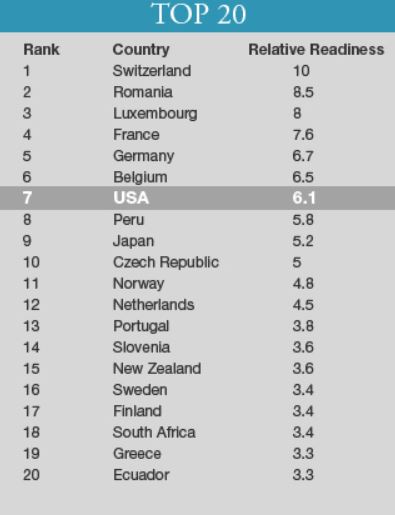Plumbing may not be sexy, but it matters.
There is more than ample proof that we have already embarked on what I have called “The Age of Awareness” -- where networking capable sensors are literally embedded everywhere and in everything we own and use. Some have called this the Internet of Things (IoT), but it is much more than that. From surveillance cameras to what will be the exploding population of wearable devices of all shapes and sizes to small transmitters in our clothing and appliances, we are at the bottom of the on-ramp of a revolution.
Where plumbing becomes critical is in providing all of the communications-ready devices a means for being discretely (including securely) accessible. Just because they can “talk” does not automatically mean they have the wherewithal to actually do so. That is where plumbing becomes hyper-critical.
 As the slow (too slow, for many) transition from IPv4 to IPv6 continues, it's important to pay attention to the ongoing changes to the Internet's addressing capabilities. Without going into all of the technical niceties that the move from IPv4 to IPv6 will provide, the biggest one is expanding the number of IP addresses that can be used by devices from a state where in many parts of the world the available address capability has been exhausted to a state where under IPv6 there are almost a limitless number of addresses.
As the slow (too slow, for many) transition from IPv4 to IPv6 continues, it's important to pay attention to the ongoing changes to the Internet's addressing capabilities. Without going into all of the technical niceties that the move from IPv4 to IPv6 will provide, the biggest one is expanding the number of IP addresses that can be used by devices from a state where in many parts of the world the available address capability has been exhausted to a state where under IPv6 there are almost a limitless number of addresses.
It has been pointed out over the years, as the problem of IP address exhaust became apparent and IPv6 emerged as the solution, that there was going to be a demonstrable “fast mover” advantage for countries and companies that transitioned quickly. According to a new analysis by Logicalis US, an international IT solutions and managed services provider, the U.S. currently ranks seventh among the world’s nations in terms of its readiness for IPv6, and to employ an old expression it needs to “get with the program.”
Using data gathered from Cisco (based on original data from RIR, routeviews, Alexa, Google, ITU and APnic ), Logicalis explains that while the countries that are more advanced in being ready for IPv6 are primarily small, the readiness ranking “shows that America's relative failure to keep up could threaten U.S.-based businesses' ability to compete internationally, particularly in vital, fast-growing economies.”
"This is undoubtedly a concern for U.S. businesses. IPv6 might sound like a technology issue, but it's much more than that. The United States has certainly not fallen too far behind yet, but failure to keep pace with other nations – trade partners or competitors – could ultimately have serious implications in terms of competitive capabilities for U.S. businesses," says Mike Martin, senior vice president, Solutions and Services, at Logicalis US. "The move to IPv6 will ensure that growth opportunities, which would have been lost had the world allowed IPv4 addresses to run out, are protected. The U.S. is certainly capable of taking advantage of those opportunities, but IPv6 readiness efforts must quickly be redoubled."
As Logicalis notes, IPv6 provides the capacity required to support:
- The proliferation of mobile devices, many of which will require IPv6 connectivity, and the mobility strategies that are increasingly important to competitive strategies worldwide.
- Increasing Internet connectivity requirements in devices like cars, security systems, heart rate monitors, and home appliances.
- New demands generated by industrial and residential applications, transportation systems connected to the cloud, integrated telephony services, sensor networks, distributed computing, and online gaming.
They also point out that IPv6 readiness is fast becoming a requirement for companies looking to tap into growth opportunities in fast-growing economies where IPv4 has already run out.
"While this may not be a business-critical issue just yet, that's no reason to wait," Martin says. He concluded that, "As with all growth opportunities, being late to the party really isn't an option. Everyone from infrastructure and service providers to businesses with an eye on growth must address IPv6 readiness now or risk being left behind."
Edited by
Rachel Ramsey